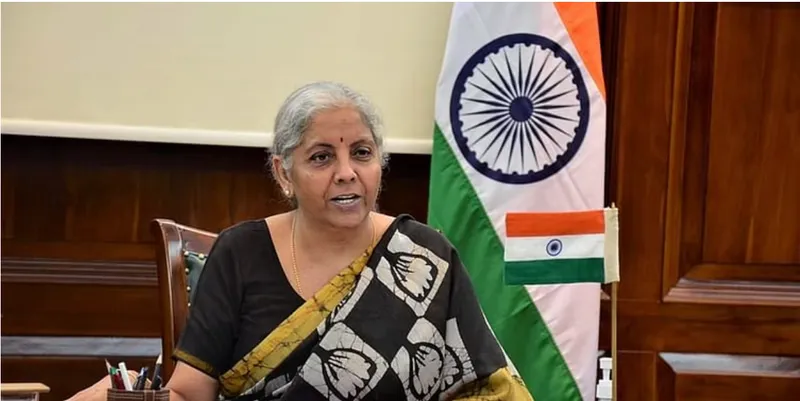US industry urges FM to rationalise, simplify direct and indirect taxes in India
Direct taxes can be in the form of income tax, capital gains tax, or securities transaction tax, while indirect taxes such as GST, Customs Duty or VAT are levied on all end-consumers to buy any goods or services.
Ahead of the annual budget presentation, an India-centric top US strategic and business advocacy group has urged Union Finance Minister Nirmala Sitharaman to simplify and rationalise direct and indirect taxation system in India, a move it believes would increase the confidence of global investors and yield greater foreign direct investment (FDI).
Direct taxes can be in the form of income tax, capital gains tax, or securities transaction tax, while indirect taxes such as GST, Customs Duty or VAT are levied on all end-consumers to buy any goods or services.
"Rationalise corporate tax rates for foreign companies," said the US-India Strategic and Partnership Forum (USISPF) in its submission to the finance ministry ahead of the annual budget presentations on February 1. It said that the rate for foreign companies, including banks, be reduced to bring parity and sought to rationalise tax for new manufacturing companies.
Urging India to simplify capital gain tax reforms, USISPF sought harmonising holding periods and rates of different instruments.

Nirmala Sitharaman
"Reiterate India's commitment to the global tax deal," it said and urged the Union Finance Minister to extend the concessional tax regime to Foreign Portfolio Investment (FPI) from investment in securities.
USISPF has also suggested tax incentives to specific sectors like renewable energy and R&D investment in the health sector.
Among the Forum's recommendations include advocating for a stable and predictable tax environment, improving the ease of doing business environment, rationalisation of the cost of doing business, and rationalisation of tax rates and tariffs.
On indirect taxes, the USISPF sought clarification on customs duty exemptions provided to oil and natural gas companies, reduction in customs duty rates for x-ray machines from 10% to 7.5% and providing customs duty exemption on all items imported by specified research and development units.
USISPF urged the finance minister to roll back the customs duty increase on nutritional products considering the importance and significance of the product and encourage the availability of scientifically designed nutritional food in India.
Among its recommendations on customs tariffs and duties and customs, processes include addressing ambiguities in the customs tariff act on telecom products, an extension of concessional customs duty to advanced biofuel projects and strengthening the process on the ground with respect to trade facilitation schemes like CAROTAR and Faceless Assessment.
Edited by Megha Reddy








